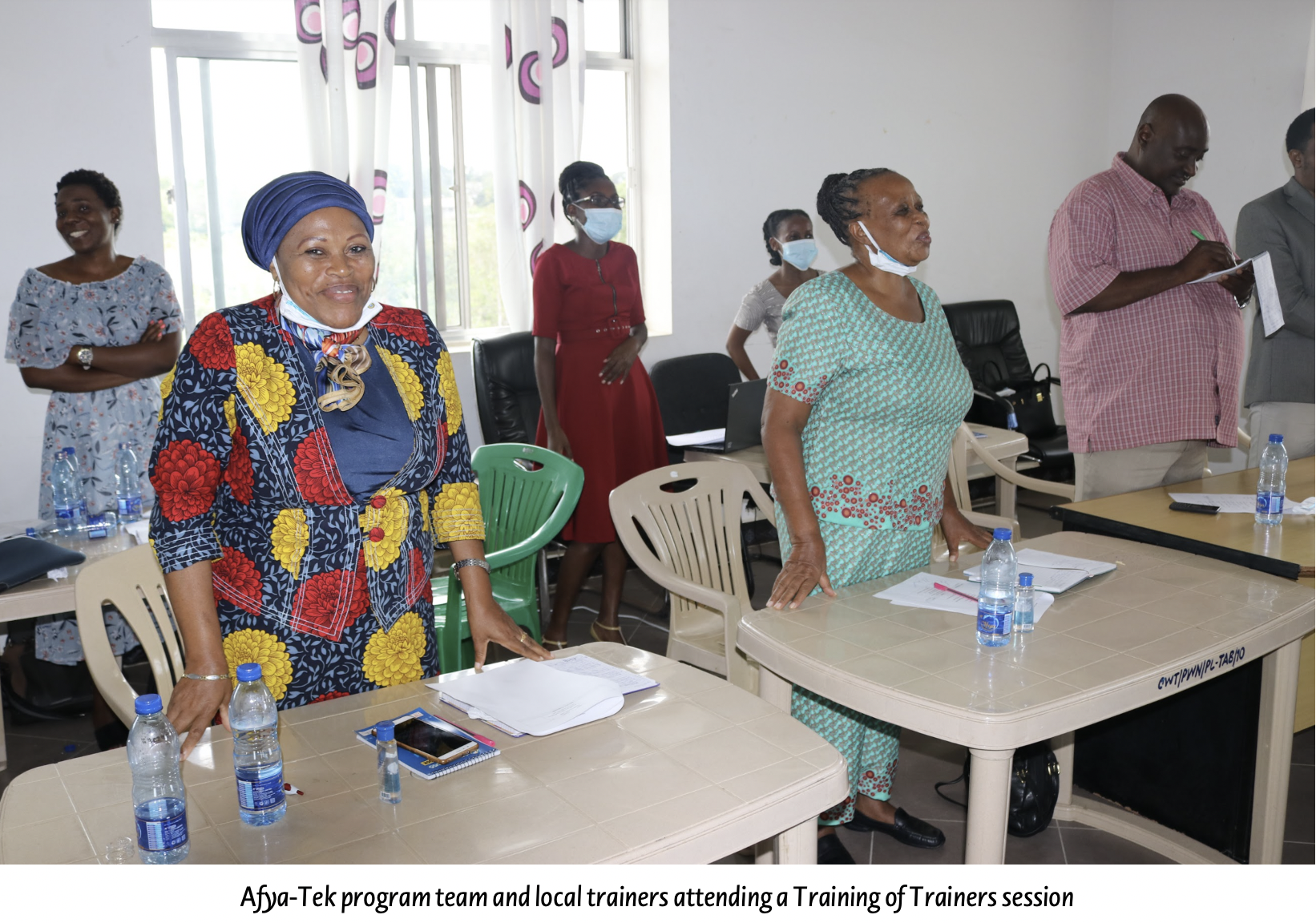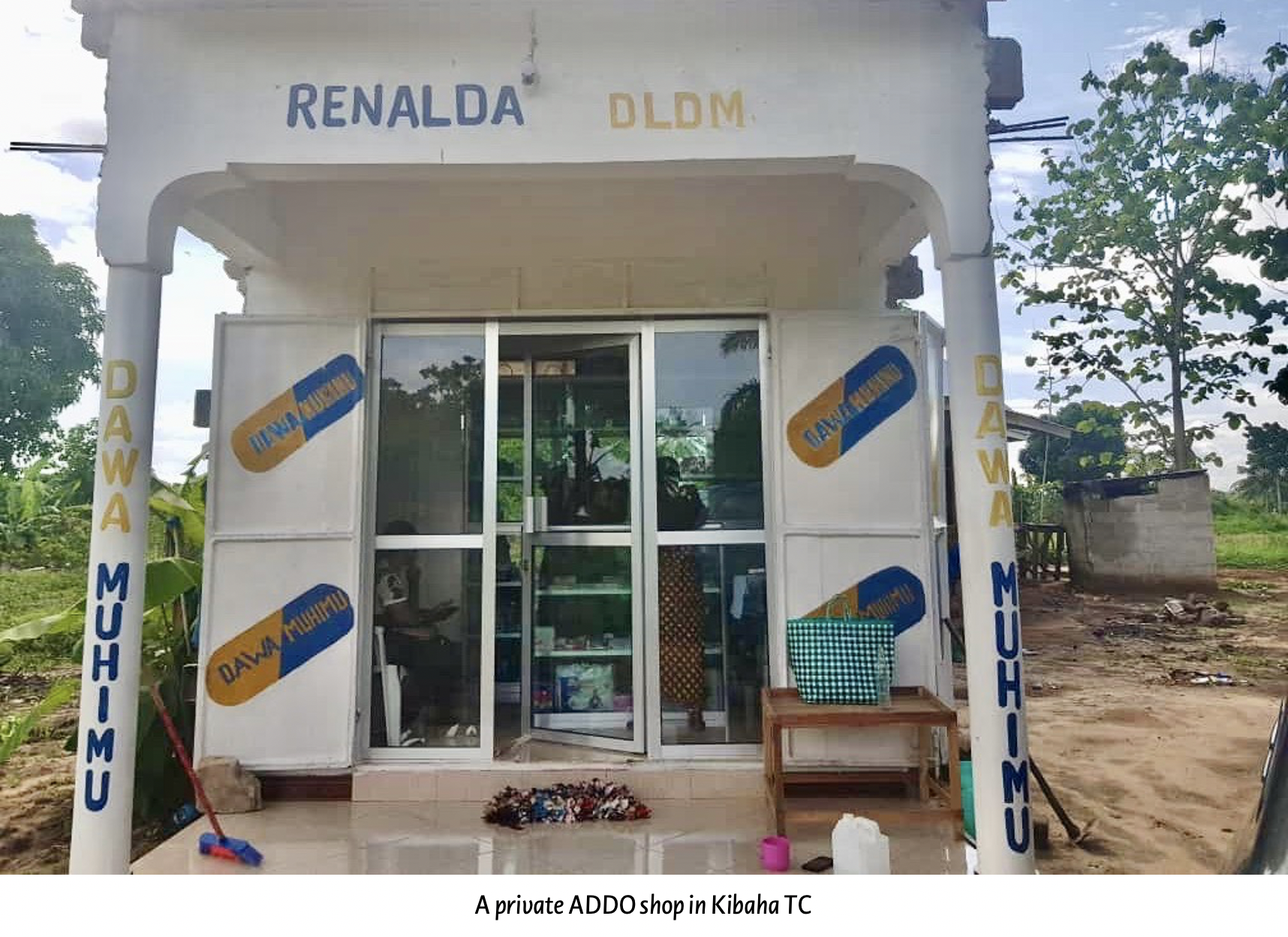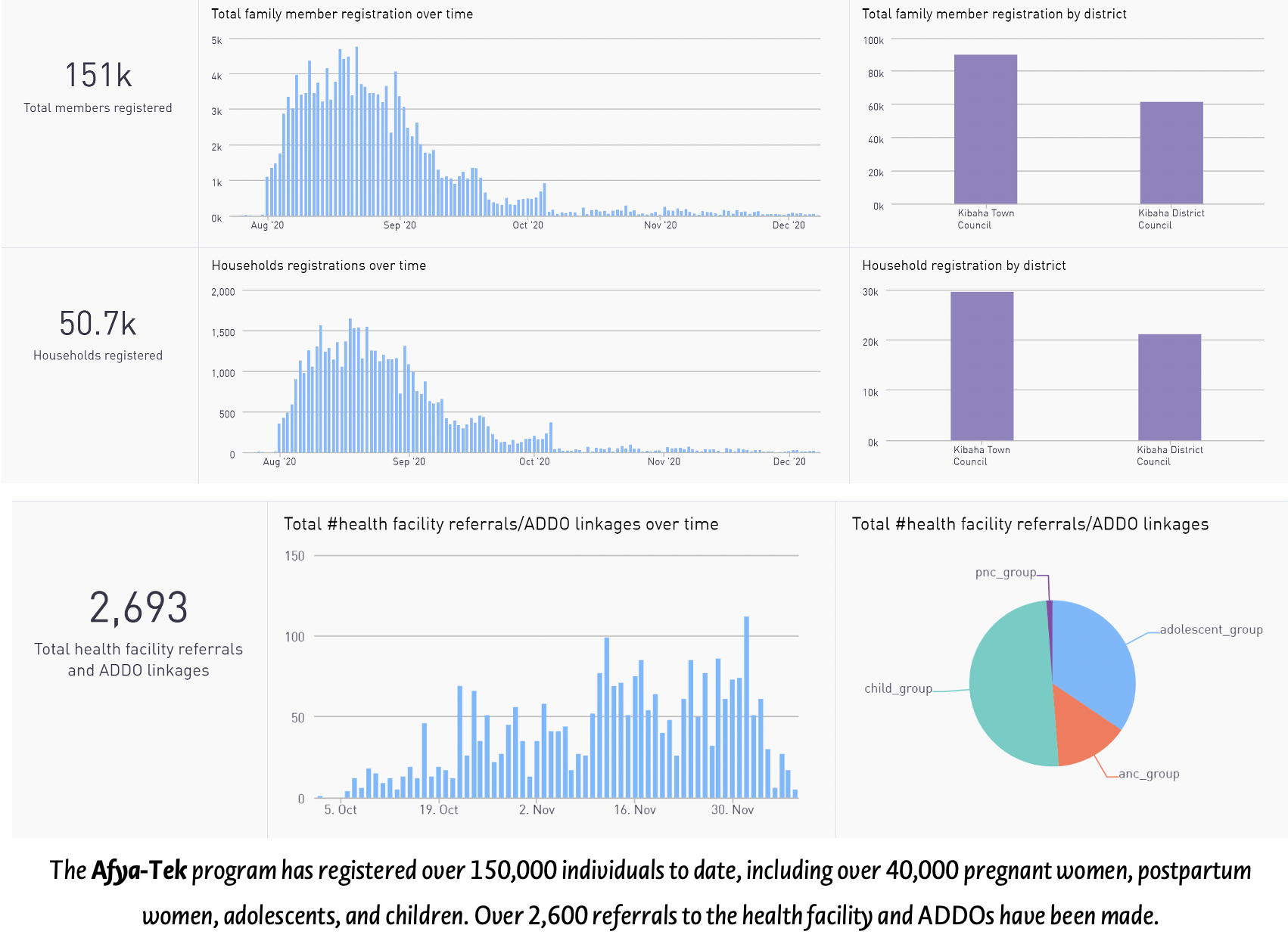Since its launch in August of 2020, Afya-Tek, a fully digitized and people-centered primary healthcare referral system, has already begun to improve the coordination between community health workers (CHWs), health facilities, and private drug dispensaries (also known as accredited drug dispensing outlets, or ADDOs) along the continuum of care throughout Kibaha, Tanzania. As we continue to monitor the program’s impact on health outcomes, we are pleased to share four strategies that have been key to our success to date.
1. Government alignment and engagement
Core to the Afya-Tek program’s approach has been to develop strategies in line with government requirements, community needs, and end-user priorities in order to promote the system’s utility, scale, and sustainability in Tanzania. The digital solution emerged from community meetings and user-centered design workshops with local leaders, health providers, program beneficiaries, and government officials. We sought and received key input from the Ministry of Health, Community Development, Gender, Elderly and Children (MOHCDGEC); President’s Office, Regional Administration and Local Government (PORALG), and the Pharmacy Council during the program design phase to ensure that Afya-Tek aligned with government protocols, guidelines, and systems.
“All partners showed dedication, commitment and strong ownership of the system from the start of the program” – D-tree Program Coordinator
For example, our team of Tanzanian software engineers developed the system using OpenSRP, an open-source technology platform selected by the government, which facilitates Afya-Tek’s seamless integration into existing government systems. Our team received support and guidance from Ona Systems—the developers of OpenSRP—which promoted an efficient and high-quality development process. The collaboration with the government from the beginning of the program, as well as the alignment with government systems, positions the program for long term scale-up in line with the government vision of one unified community health information system.
2. Promoting local ownership
Engaging local partners and leaders at all levels from the outset of the program was critical to setting Afya-Tek up for success. As the system went live, local trainers were selected for Training of Trainers (TOT) from the Council Health Management Teams (CHMTs), the Regional Health Management Teams, the Pharmacy Council and Tanzania Public Health Associations. By providing the technical skills needed to ensure all trainers were well prepared to train users on the Afya-Tek digital apps, TOT sessions equipped local leaders to assume ownership of the program. These local trainers led the trainings and are now following up with users post-training to assist on technological and troubleshooting challenges. They serve as an important link between users and local government leaders. Our extensive collaboration with local leaders streamlines program activities, ensures local partners have the skills and resources to manage the program independently, and establishes a local structure of champions for the program.

3. Continuous enhancement of the system through user and community feedback
Through making iterative updates to the Afya-Tek system throughout program design and implementation, we have learned the importance of establishing efficient feedback structures in order to update the digital solution to be more human centered and user-friendly. We have continually enhanced the Afya-Tek system by gathering end-user and community feedback and implementing appropriate refinement strategies. For example, after training, we held follow-up workshops where the Afya-Tek team and local leaders established a comprehensive plan to assess user performance, respond to changing needs, and identify opportunities for program and system improvement. Starting in November, we used a series of follow-up assessment checklists to routinely evaluate health worker performance – identifying parts of the system users struggled with, recognizing areas they excelled in, and providing support as needed. Follow-up activities not only help us monitor the progress of users, but also allow us to utilize feedback to adapt and refine key system functionalities to fit user needs. We will continuously refine the system through user feedback to enhance the system usability, bolster user self-sufficiency, and improve overall program delivery.

4. Utilizing data for actionable and evidence-based decision making
The Afya-Tek team has been closely monitoring program progress through live dashboards since program launch. The dashboards provide actionable insights for government and program staff, and by utilizing and sharing them, we help increase data transparency and accessibility—an important aspect for government evidence-based decision making.
In November, the Afya-Tek team initiated a series of dashboard usage workshops with CHW supervisors, CHMTs, local district leaders, and health providers to develop a culture of data use and action. The workshops ensured that these vital stewards of the local healthcare system knew how to use the tools available to them to successfully monitor the Afya-Tek program. They learned how to use and interpret the program dashboards to track user performance and then take action to intervene to improve user support and performance where needed. We helped participants practice these skills by having them develop their own action plans in which they devised a follow-up plan to document areas of concern, propose actions to address identified issues, and track progress. Training the government and local leaders on how to effectively utilize data for decision-making allows local leaders to independently manage team performance and troubleshoot challenges that may arise. In turn, this should promote better user skills and performance, as well as high quality service delivery.

Moving forward
Since the rollout of the Afya-Tek program, close engagement with government actors, promotion of local ownership of the program, continuous system refinement through user feedback, and the utilization of data to gain actionable insights have all been key in setting up the Afya-Tek program for success in Kibaha. These strategies, interwoven throughout all program stages, also promote the suitability of the system for sustained government adoption of Afya-Tek at scale, positioning the system to become a hallmark for primary healthcare innovation in Tanzania.

